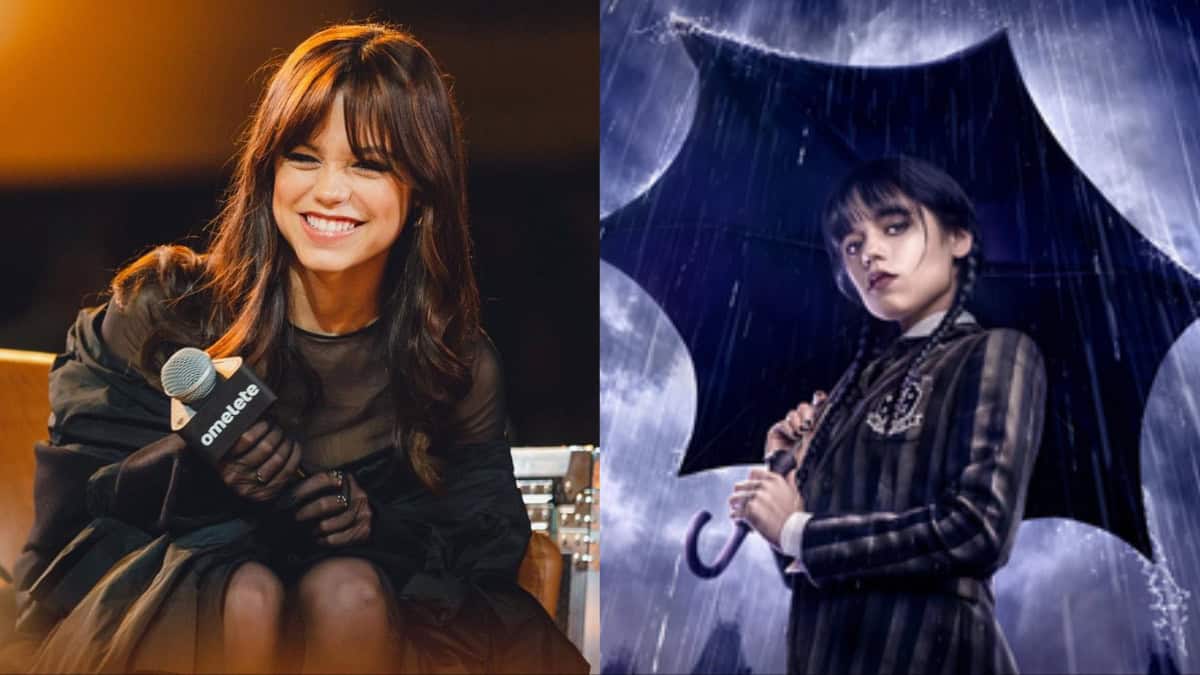When “Stereophonic,” David Adjmi’s magnum opus about a nineteen-seventies rock band recording an album, débuted last year, at Playwrights Horizons, the Off Broadway venue gave over part of its lobby to a vintage-clothing shop. The theatre knew that spending more than three hours with Adjmi’s characters, each one gorgeously outfitted in the designer Enver Chakartash’s flowing bell-bottoms and deep-cut kimono tops, would turn the audience into groupies. It wouldn’t matter that those same characters had been tiresome or vain or careless with one another—the often dreamy, sometimes electrifying flower-rock songs, written by Will Butler (formerly of Arcade Fire), would make us imagine our own green selves up there, and want the velvet pants to prove it.
Now that “Stereophonic” has moved to Broadway’s Golden Theatre, you’ll have to source your own flares. But the show retains its immersive effect, thanks to Adjmi’s fly-on-the-wall hyperrealism, directed with an invisible hand by Daniel Aukin. The play takes place in a California recording studio in 1976 and 1977: David Zinn’s set consists of a cedar-toned control room, a warm domain of squashy floor pillows and assorted beanbags where the young engineer Grover (Eli Gelb) operates a huge mixing console and a twenty-four-track tape machine. Upstage is a soundproof recording booth, lit by Jiyoun Chang to seem as cold as a fish tank. The part-British, part-American band, never named in Adjmi’s text, is essentially Fleetwood Mac, and the album we’re watching them craft in the course of an increasingly torturous year seems awfully similar to that band’s fraught masterpiece, “Rumours.” The British musicians are the drummer, Simon (Chris Stack); the bassist, Reg (Will Brill); and his keyboardist wife, Holly (Juliana Canfield). Two Americans have joined them on the path to superstardom: the Stevie Nicks-inflected lead singer, Diana (Sarah Pidgeon), and her domineering partner, a Lindsey Buckingham-ish guitarist and perfectionist producer named Peter (Tom Pecinka).
The biographical details, though, are Adjmi’s to do with as he pleases, and he focusses on the extraordinary intensity engendered by creative collaboration, desire, and tons of cocaine. He shows us Reg and Holly serially breaking up, as well as Peter and Diana’s toxic codependence. The term “stereophonic” refers to blending multiple transmission channels, which the play literally does: as Grover adjusts the faders on the console, we sometimes eavesdrop on private conversations in the booth. We hear murmurs, tape reels clicking, room tone, and then, BOOM BOOM BOOM, the bass drum pounding away behind our ribs. Relationship catastrophes strike and recede, but the recording goes on. (Time may heal all wounds, but music preserves them.) Above all, the quintet appears to be, ruinously, in love with itself; even Grover almost falls into the band’s erotic, generative turbulence. Only his assistant Charlie (Andrew R. Butler, who looks like a weed-dealing St. Jerome) maintains his distance, mostly because no one remembers his name. The audience should listen to him, though. “The room has a really nice decay,” Charlie says at one point, hearing some subtle, perhaps metaphorical, undertones we can’t catch.
Adjmi’s slow-moving quasi-documentary operates in several ways: it feeds our nostalgia for a time that seems, from this distance, promisingly free, and also our hunger for virtuosity attained through dogged work. The actors, all superb, play live, and Adjmi, whose script carefully notates their overlapping dialogue, orchestrates them beautifully. Brill’s unsteady Reg, for instance, who wobbles from booze to coke and back, sets the dramatic pace, and Diana’s excellence tugs at the fabric of the group’s cohesion: Pidgeon’s voice, finest when it’s roughest, sets her character apart as the one who could actually make a go of a solo career. As a leitmotif, we hear parts of a song Diana has written—“I’m in the bright light / Forgetting my name / The shadow of our lives / Familiar but strange”—from her initial, hesitant demo to the full band’s richly layered final version, assembled by an exhausted Grover. Adjmi asks whether it’s worth wrecking a few hearts to make a great song; he answers his own question in the end.
The sound designer Ryan Rumery has a nearly impossible task, which he executes with ambition and finesse, but he’s trying for needlepoint accuracy in a Broadway house, which sometimes fights back. The way that music stays alive after being electronically organized into tape is one of the play’s core mysteries, but there are places in the Golden where the sound goes a little sour. Playwrights Horizons’s compact, wood-walled venue functioned as a well-balanced listening room, whereas the sprawling new venue is a gamble, seat by seat. That’s Broadway for you: everybody pays a toll to get there.
Transferring a significantly longer distance—say, from London’s West End—also has its perils. Riding a wave of critical acclaim (and seven Olivier Awards), “Cabaret at the Kit Kat Club,” starring Eddie Redmayne as the titular boîte’s master of ceremonies, comes to town. Instead of a vintage-clothing shop, the production has installed themed bars on every floor of the August Wilson Theatre and transformed its proscenium stage into a luxe, in-the-round burlesque joint. Yet although the performers come as close to the audience as they can, including onto the occasional lap, the action itself often feels far away, perhaps on the other side of the chasm between American and British dramatic sensibilities.
There are resonances between “Cabaret,” originally produced in 1966, and “Stereophonic.” John Kander, Fred Ebb, and Joe Masteroff’s version of the early nineteen-thirties chimes, strangely, with the nineteen-seventies. In each show, we’re plunged into a louche, long-ago decade, in which drug-fuelled, antic musicians make art as though the world were ending. (It’s a perpetual two in the morning at both the studio and the club.)
Kander and Ebb’s musical about the guises of Fascism relies on a slow build from seeming liberation to revelation: an American named Cliff (Ato Blankson-Wood) bumbles his way through Weimar Berlin, intoxicated by the permissive night life and oblivious of the growing political horrors all around him. It was last on Broadway in 2015, with Alan Cumming playing the mischievous m.c.—a certain Puckish reserve is crucial to the role. The director of this revival, Rebecca Frecknall, approaches the material as if she’s exploring hidden meanings in a Jacobean text for people who have never heard a “thou” before. Hers is the subtext-as-atmosphere version of an auteur director’s treatment, offering at every moment the darkest, grungiest interpretation possible. From the outset, she has the cabaret dancers slither like demons in some medieval vision of Hell, which, paradoxically, renders the show both dull—oh, look, it’s the half-naked tubercular imps again—and a bit prudish. By shifting the early parts of the musical toward menace, Frecknall has made sexual licentiousness coincident with evil. Surely this is not her intention.
All is not ill: Gayle Rankin, whose voice is a big angry miracle, plays Sally Bowles, the cabaret’s down-at-the-heels star, and she scream-sings with such total conviction that she almost sells the show as her own personal nightmare. But Frecknall chooses Redmayne as her production’s centerpiece, and it’s been clear since he performed in “Red” on Broadway, in 2010, that he is most affecting when his impulses are reined in. When they aren’t, he can careen into absurdity, as he does here—inventing a German accent so pernicious (“Tomowwoar belongs toor me,” he sings) that you can’t always understand him, and an overly ornate physical vocabulary that’s one part silent-film Pierrot and one part Igor from “Young Frankenstein.” I have never felt so far from other audiences as I did knowing that this incarnation was beloved in London. Perhaps British viewers, familiar with stylization from Christmas pantomimes and music-hall tradition, enjoy a broader mode of performance than I do. Or, as with that “decay” in the “Stereophonic” studio, maybe there are some qualities I simply cannot hear. ♦







